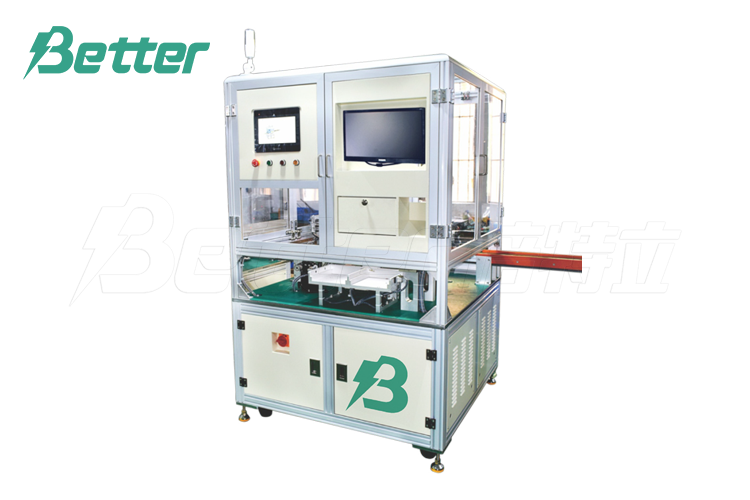
Technical Advantages and Key Parameters of Laser Welding Machines
2024-10-16 18:00Introduction
With continuous technological advancements, innovations in the manufacturing industry are evolving rapidly. Laser welding technology, as a revolutionary innovation in the welding field, is swiftly replacing traditional welding methods and becoming the preferred process in numerous industries. Laser welding machines play a crucial role in enhancing production efficiency and product quality due to their outstanding technical advantages and key parameters.
Welding Precision and Energy Efficiency
High-Precision Welding
In battery manufacturing and other precision manufacturing sectors, welding precision is one of the key factors determining product quality. Traditional welding methods, such as arc welding and ultrasonic welding, while meeting most welding needs, show significant deficiencies in welding precision. These conventional methods often lead to overheating, uneven weld seams, and material deformation during the welding process, which affects welding quality.
The advent of laser welding technology effectively addresses these issues. Laser welding machines utilize a high-energy laser beam to heat the welding area to a molten state, thereby achieving material connection. The laser beam's small diameter allows it to focus on the welding point, minimizing the heat-affected zone (HAZ) and reducing material deformation and damage.
The welding precision of laser welding machines can reach ±0.01mm, meaning each weld point can be precisely located at its designated position. This high-precision welding process ensures the strength and durability of weld joints, making it particularly suitable for applications that demand high welding quality.
Energy Concentration and Heat-Affected Zone Control
Due to their large heat-affected zones, traditional welding methods can lead to changes in the physical properties of materials near the welding area, thereby affecting the overall performance of the product. The energy concentration advantage of laser welding technology significantly reduces the heat-affected zone, thus avoiding material performance degradation.
Moreover, laser welding machines can accurately control the heat generated during welding by adjusting laser power and welding speed. This precise thermal control capability enables laser welding machines to process various types of materials, including heat-sensitive high-performance alloys and composite materials.

Detailed Equipment Technical Parameters
The exceptional performance of laser welding machines largely depends on their key technical parameters. Below are some core parameters of laser welding machines and their explanations:
Battery Size Support Range
Laser welding machines can handle a battery size range of L40-120 mm, W35-90 mm, T3-10 mm, allowing the equipment to adapt to various specifications in battery manufacturing. This wide size support range provides great flexibility to meet diverse production line needs.
Welding Precision
The welding precision of laser welding machines reaches ±0.01mm, ensuring the accuracy of every weld point. This high precision not only improves product quality but also reduces the rework and scrap rates caused by poor welding.
Tab Loading Speed
The tab loading speed of the equipment can reach 10-70 pieces per minute, suitable for large-scale production. The fast loading speed significantly enhances production efficiency, especially in batch production environments.
Operating Voltage and Power
The operating voltage of laser welding machines is 220V 50Hz, with a power of 2KW, conforming to standard industrial voltage, making it easy to integrate into existing production lines. The power settings of the equipment are flexible and can be adjusted according to different materials and welding needs to optimize welding performance.
Comparative Analysis
Compared with traditional welding equipment, laser welding machines exhibit significant advantages in multiple aspects:
Higher Precision: Laser welding machines can achieve high-precision welding of ±0.01mm, which is often unattainable by traditional welding methods.
Smaller Heat-Affected Zone: The energy concentration advantage of laser welding technology significantly reduces the heat-affected zone, minimizing material deformation and damage.
Flexible Operation: The power and speed of laser welding machines can be flexibly adjusted according to different welding needs, accommodating various materials.
Higher Efficiency: The automation of laser welding machines and their high-speed loading capabilities significantly improve production efficiency, especially suitable for large-scale production.
Conclusion
With their high precision, high efficiency, and low heat-affected zone, laser welding machines are becoming the preferred equipment in the manufacturing industry. Their key technical parameters further validate their exceptional performance in enhancing production efficiency and product quality.
For manufacturing enterprises seeking to maintain a competitive edge in a fiercely competitive market, laser welding machines are undoubtedly an ideal choice. They not only help businesses improve production efficiency and reduce costs but also provide strong technical support for sustainable development.
Introduce laser welding machines to invigorate your production line and embark on a new era of intelligent manufacturing!
FAQ
Q1: Why is the welding precision of laser welding machines so high?
A: Laser welding machines achieve high precision of ±0.01mm through high energy density laser beams, allowing precise control of the position and size of weld points, ensuring high welding accuracy.
Q2: Can laser welding machines cause material deformation?
A: The heat-affected zone of laser welding technology is very small, and energy is concentrated at the welding point, so the risk of material deformation is minimal, making it especially suitable for welding tasks with stringent material requirements.
Q3: Is the power of laser welding machines adjustable?
A: Yes, the power of laser welding machines can be flexibly adjusted according to different materials and welding needs to ensure optimal welding results.
Q4: In which industries are laser welding machines suitable for use?
A: Laser welding machines are suitable for various high-precision and high-requirement industries, including battery manufacturing, aerospace, consumer electronics, and medical devices.
